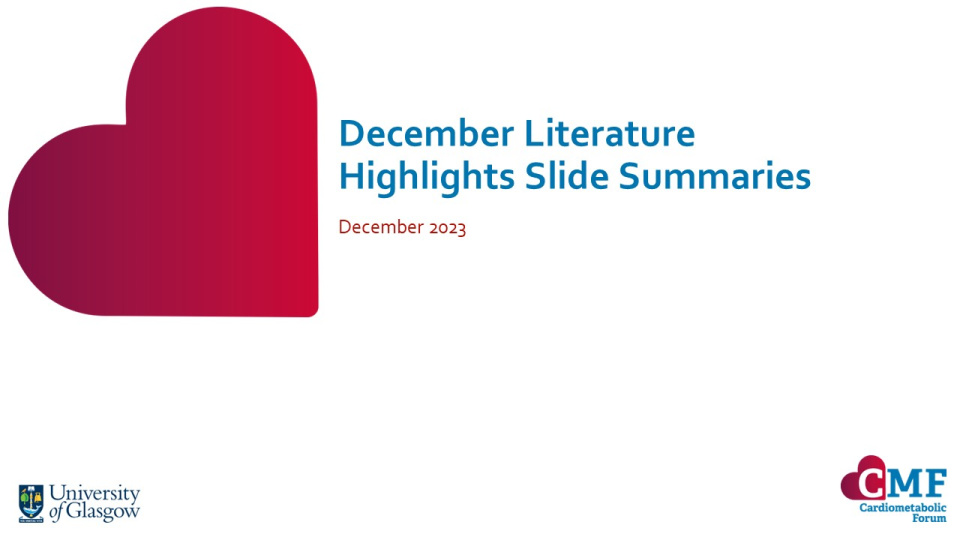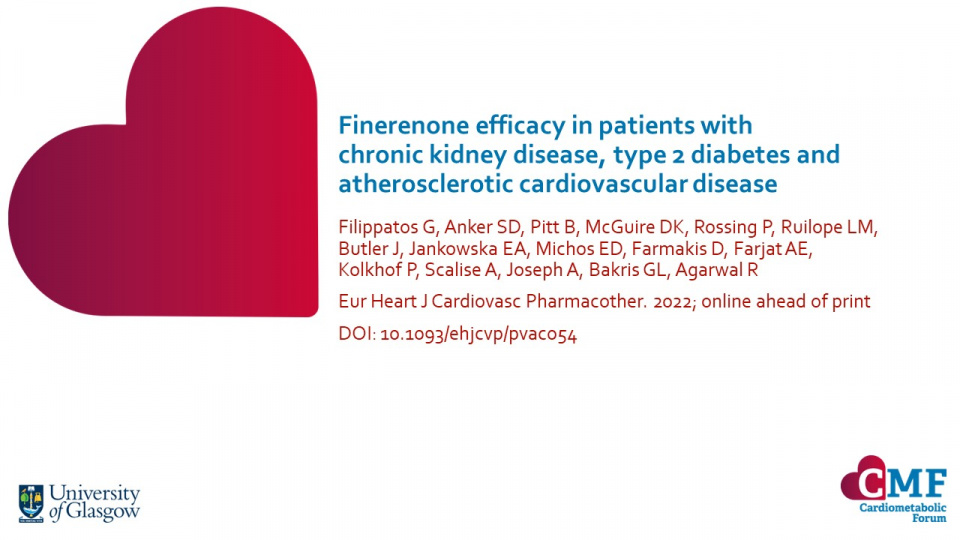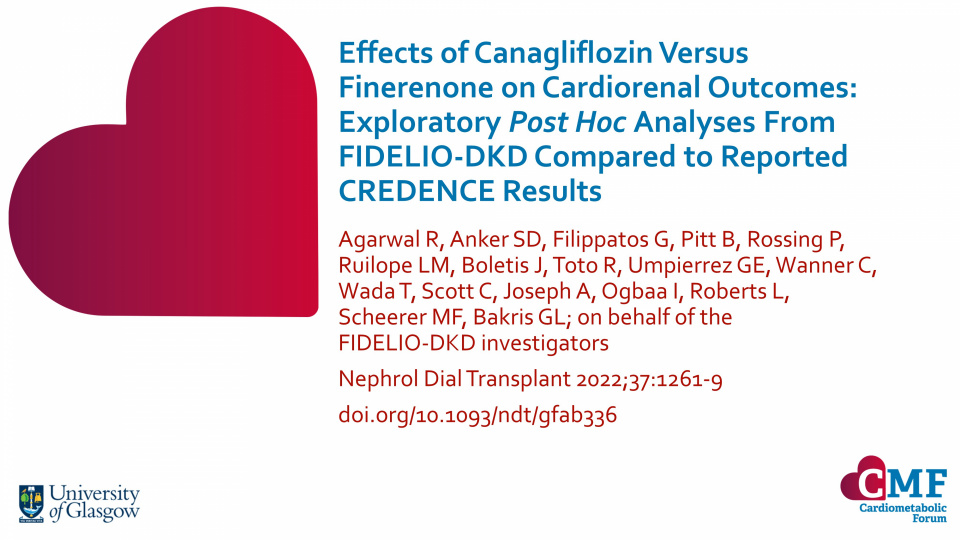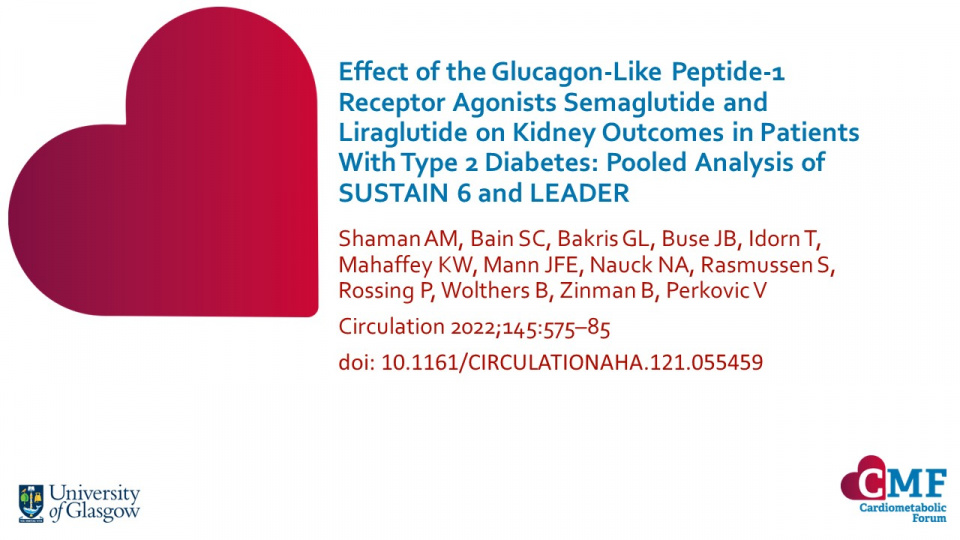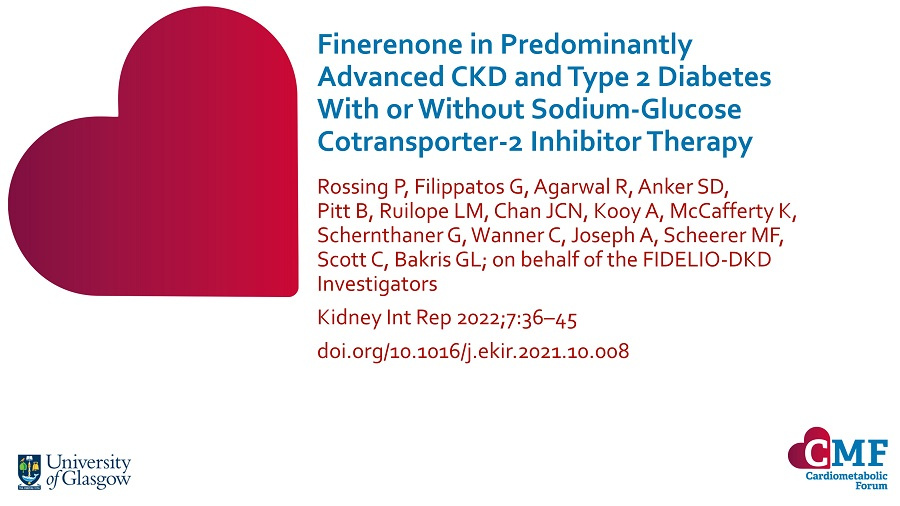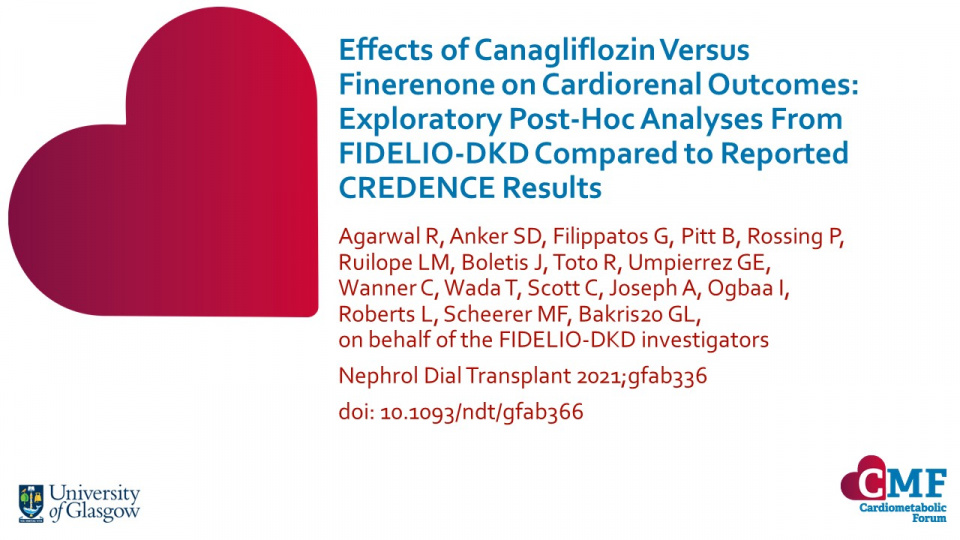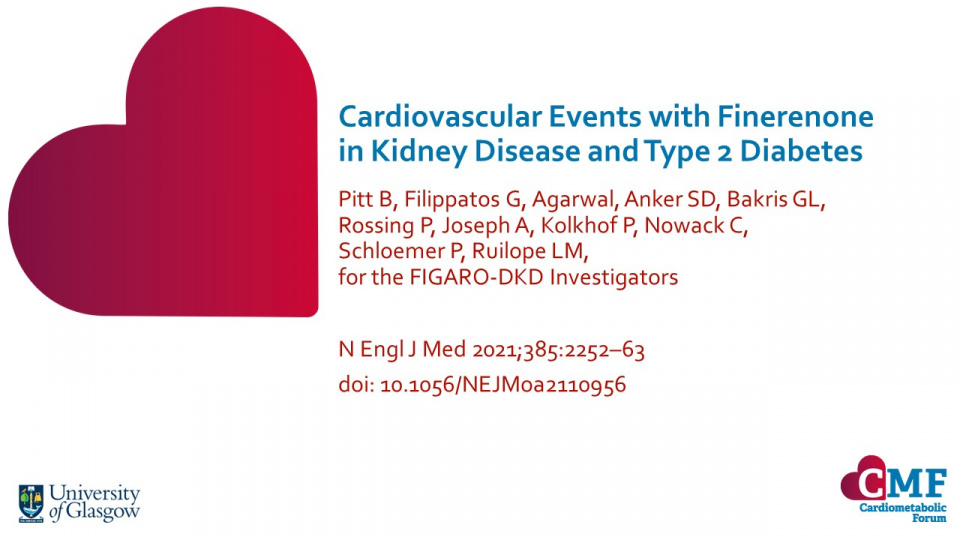Publications
Stay up to date with our literature reviews which are curated by experts to feature the most important publications released each month. Explore our publications for access to concise summary slides for your own use.
Finerenone efficacy in patients with chronic kidney disease, type 2 diabetes and atherosclerotic cardiovascular disease
Eur Heart J Cardiovasc Pharmacother. 2022; online ahead of print DOI: 10.1093/ehjcvp/pvac054
Finerenone reduced the risk of CV and kidney outcomes consistently across the spectrum of CKD in patients with T2D, irrespective of prevalent ASCVD.
Effects of Canagliflozin Versus Finerenone on Cardiorenal Outcomes: Exploratory Post Hoc Analyses From FIDELIO-DKD Compared to Reported CREDENCE Results
Nephrol Dial Transplant 2022;37:1261-9 doi.org/10.1093/ndt/gfab336
This analysis highlights the pitfalls of direct comparisons between trials, since when key differences in design are considered, FIDELIO-DKD and CREDENCE demonstrate similar cardiorenal benefits. The authors conclude that both canagliflozin and finerenone are similarly effective in reducing the risk of cardiorenal outcomes.
Effect of the Glucagon-Like Peptide-1 Receptor Agonists Semaglutide and Liraglutide on Kidney Outcomes in Patients With Type 2 Diabetes: Pooled Analysis of SUSTAIN 6 and LEADER
Circulation 2022;145:575–85 doi: 10.1161/CIRCULATIONAHA.121.055459
In this analysis by Shaman et al., semaglutide and liraglutide offered kidney-protective effects in patients with type 2 diabetes, especially those with pre-existing chronic kidney disease.
Finerenone in Predominantly Advanced CKD and Type 2 Diabetes With or Without Sodium-Glucose Cotransporter-2 Inhibitor Therapy
Kidney Int Rep 2022;7:36–45 doi.org/10.1016/j.ekir.2021.10.008
Finerenone was associated with a 31% greater reduction in urine albumin:creatinine ratio (UACR) from baseline to Month 4 versus placebo. With similar reductions in UACR seen whether the patient was receiving SGLT2i at baseline or not.
Effects of Canagliflozin Versus Finerenone on Cardiorenal Outcomes: Exploratory Post-Hoc Analyses From FIDELIO-DKD Compared to Reported CREDENCE Results
Nephrol Dial Transplant 2021;gfab336 doi: 10.1093/ndt/gfab366
Finerenone and canagliflozin reduce cardiorenal risk in patients who are albuminuric. This exploratory post-hoc analyses by Agarwal et al. investigated how differences in trial design influenced observed treatment effects in the FIDELIO-DKD and CREDENCE studies.
Cardiovascular Events with Finerenone in Kidney Disease and Type 2 Diabetes
N Engl J Med 2021;385:2252–63 doi: 10.1056/NEJMoa2110956
Finerenone has desirable effects on cardiorenal outcomes in patients with stage 3 or 4 chronic kidney disease (CKD), type 2 diabetes and severely elevated albuminuria. The outcomes of the use of finerenone are unclear in patients with type 2 diabetes and a wider range of CKD.

